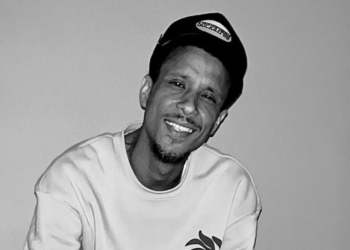Finally! Exactly what America needs: less educated cops.
According to a report from USA Today’s N’dea Yancey-Bragg, police departments across the U.S. have been bleeding staff for years. Dallas, for instance, was losing more officers than it hired, even as voters in 2024 demanded the force bulk up to 4,000 strong, which is several hundred more than its all-time peak.
If you’re looking for a reason, it’s roughly the same reason ICE is currently finding it difficult to hire new agents: it’s a profession deemed so untrustworthy, so rife with corruption and racism and brutality, that no one wants to be a part of it.
Rather than change themselves in any way to better benefit the public and, in turn, their own recruitment numbers, police forces across the nation are dropping college education requirements to lure in those who wanted to be cops but were previously not academically up to snuff.
Cities like Dallas, Chicago, Memphis, and New Orleans have started hiring police recruits without requiring any college credits. The idea is to open the gates wider, make the job more accessible, and maybe keep enough new boots on the street to counter the fact that they’re hemorrhaging staff.
It’s not a new idea. A 2017 survey showed that over 80 percent of law enforcement agencies already only require a high school diploma. And after the combination of the post-pandemic labor market, national protests over policing, and rising college costs, many cities are just trying to get warm bodies into police academies.
This raises two questions, both of which Yancey-Bragg attempted to answer:
- Does eliminating the requirement for a college degree actually bring in more cops?
The answer: dropping education requirements boosts applications, but that doesn’t necessarily translate to long-term staffing solutions. For instance, both Philadelphia and New Orleans dropped their college education requirements in 2016 and 2017, respectively. Both saw a massive boost in applications submitted, but neither city has met its hiring goals yet.
Today, Philly’s police force is only at 82 percent staffed, according to Philadelphia police Captain John Walker, speaking to USA Today, down from 96 percent in 2016. NOLA’s hiring numbers have been on a steady decline since 2020, according to official numbers.
2) Does a better-educated cop make for a better cop?
Research says: Kind of! According to several studies cited by USA Today, college-educated officers tend to use less force, generate fewer complaints, and write better reports, a part of the job that matters more than you think when your job regularly lands you in court. College also supposedly helps officers navigate diverse communities with a bit more empathy.
College degree or not, some people just aren’t cut out for the job. Luis Mata, a Dallas PD spokesperson, told USA Today, “I would say that we have people with master’s degrees, bachelor’s degrees and associate’s that fail out of our academy. It’s really about applying yourself.”
All of this raises an even larger question: are any of these police hiring frenzies even necessary? The short answer: absolutely not. Crime has been on a steady decline for decades, with only relatively minor spikes during the pandemic, when it’s understandable that we all lost our minds a little bit. However, after that, crime rates began to decline across the board again.
All of this is likely more a matter of perception than reality. For some reason — likely right-wing conservative media — a lot of Americans think the United States is a lot more violent and crime-ridden than it actually is. The actual cold concrete data suggests otherwise.
The post U.S. Cities Are Lowering Education Requirements for Cops appeared first on VICE.




